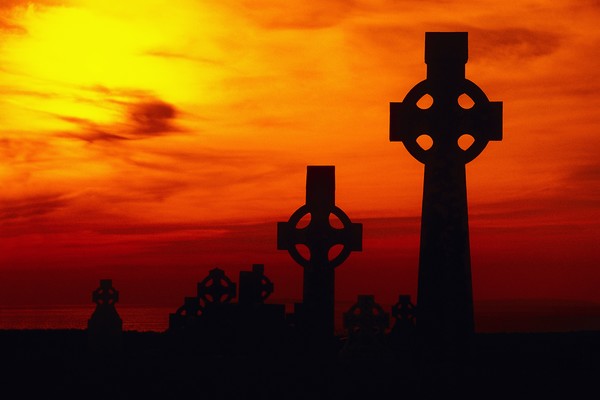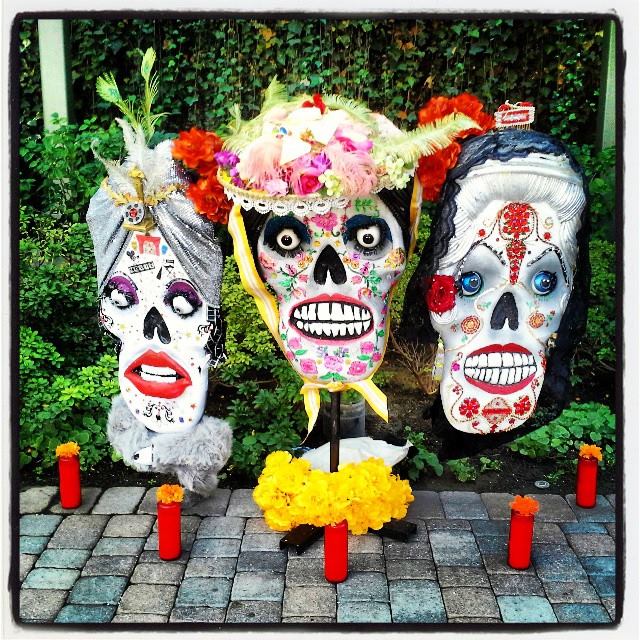
The Celtic origins of Halloween
In North America, Halloween marks a night where ghosts, goblins, ghouls and witches roam the streets in search of candy. While these traditions have become the Halloween norm, the holiday dates back nearly 2,000 years to the traditions of the Celtic New Year, Samhain. On this day, Celts lit bonfires and hollowed out turnips for the autumn festival, practices that would eventually give way to the customary carving of pumpkins. Translating in Irish Gaelic to summer’s end, the early celebration of Samhain signified the end of the harvest and the beginning of winter; a time believed by Pagans when the spiritual world blurs with the living. The Celts left food offerings at their doors to attract positive spirits, and wore masks to deter the bad ones. Traditions in Ireland persist on this ancient holiday where Halloween is celebrated much as it is in the United States with costumes, games and trickery.

Las calaveras catrinas, or “elegant skulls,” at a Dia de los Muertos celebration in San Diego.
Fall Fiesta: The Day of the Dead, November 2
In Mexico, Latin America and Spain, Halloween is celebrated as “El Dia de los Muertos,” a playful remembrance of those who have passed. Festivities begin on October 31, as families welcome the spirits of the dead back to their earthly homes with private altars, colorful decorations and food. Celebrations culminate on November 2 as relatives gather at the gravesites of loved ones on what is called All Souls’ Day to honor the souls that have departed by decorating their graves.
To America and back again:
European adaptations of Halloween
Like many other European nations, Germany is no exception in that Halloween was adopted in the early 1990s as a marketing ploy for children’s toys and candy. France was the first to adopt the holiday in 1982 when a Parisian restaurant called The American Dream brought the American celebrations to the French. The holiday eventually caught and surrounding nations would follow suit in the years following. Today, German children travel door to door in search of candy chanting “sweet or sour” and parents hide their knives to avoid harm from the descending spirits.

Remember the 5th of November with fireworks in the UK.
Proximal holidays: Guy Fawkes Day, November 5
The English have been celebrating a proximal holiday known as Guy Fawkes Day for centuries. Each year on the evening of November 5, bonfires are lit and fireworks are set off throughout England to observe the day that an infamous British traitor was executed in 1605. With the spread of the Protestant Reformation and the disintegrating belief in saints, the English stopped celebrating All Saints’ Day (Halloween) and instead included some of the Hallow traditions on this November day. In some parts of England, children walked the streets asking for pennies “for the guy,” a Guy Fawkes tradition that has almost completely disappeared.
Explore the story of evolving tradition on your favorite Explorica tours:
Germany & Central Europe Tours
